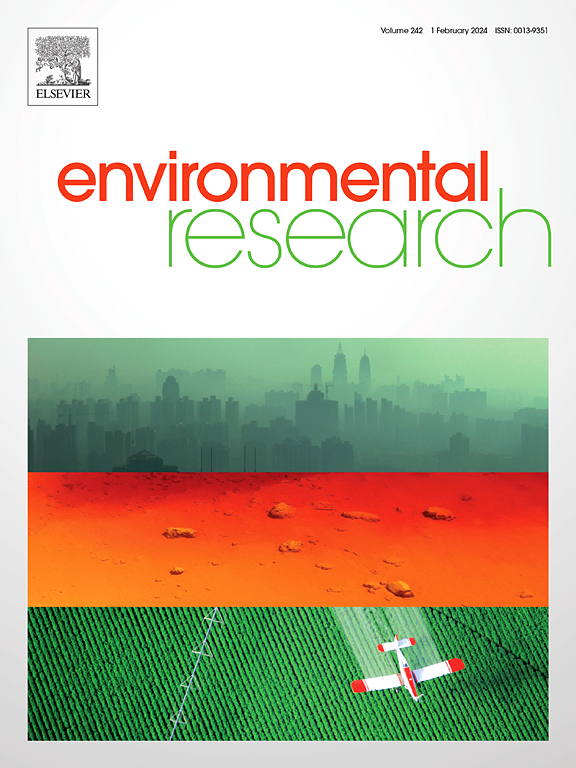Unraveling the mechanisms of anammox coupled process with thiosulfate-driven denitrification: Community succession and substrate competition
IF 7.7
2区 环境科学与生态学
Q1 ENVIRONMENTAL SCIENCES
引用次数: 0
Abstract
Thiosulfate-driven denitrification coupled with anammox (TDDA) has garnered interest for its efficient and innovative nitrogen removal capabilities. However, the intricate dynamics of the internal microbial community and the specific characteristics of anaerobic ammonium oxidizing bacteria (AnAOB) remain incompletely understood. This study combines experimental methods with density functional theory (DFT) calculations to address these gaps. The TDDA reactor was successfully started-up with an optimal S2O32--S/NO3−-N ratio of 0.6, achieving a nitrogen removal efficiency of 89.6%. Throughout this process, the relative abundance of Candidatus Kuenenia decreased by 10.2%, while the relative abundance of Candidatus Brocadia increased by 9.6%. The elevated concentration of NO₃--N inhibited Candidatus Kuenenia, and simultaneously stimulated the secretion of extracellular polymers, affecting Fe uptake by Candidatus Kuenenia. To further elucidate substrate competition, molecular docking simulations and DFT calculations were employed. The binding energy, compared with the electrostatic potential energy of the protein pocket, clearly demonstrated that Nir in AnAOB has a higher affinity for the substrate (EAnAOB = −163.2 kJ/mol vs. ESOB = -77.7 kJ/mol). By integrating molecular dynamics insights, this study overcomes experimental limitations and deepens the understanding of the mechanisms within the TDDA system.
揭示anammox与硫代硫酸盐驱动的反硝化耦合过程的机制:群落演替和底物竞争。
硫代硫酸盐驱动的反硝化与氨氧化(TDDA)因其高效、创新的脱氮能力而备受关注。然而,人们对其内部微生物群落的复杂动态以及厌氧氨氧化细菌(AnAOB)的具体特征仍不甚了解。本研究将实验方法与密度泛函理论(DFT)计算相结合,以填补这些空白。TDDA 反应器在最佳 S2O32--S/NO3--N 比率为 0.6 的条件下成功启动,脱氮效率达到 89.6%。在整个过程中,Kuenenia念珠菌的相对丰度下降了10.2%,而Brocadia念珠菌的相对丰度上升了9.6%。NO₃--N浓度的升高抑制了Kuenenia担子菌,同时刺激了胞外聚合物的分泌,影响了Kuenenia担子菌对铁的吸收。为了进一步阐明底物竞争,研究人员采用了分子对接模拟和 DFT 计算。与蛋白质口袋的静电势能相比,结合能清楚地表明 AnAOB 中的 Nir 对底物具有更高的亲和力(EAnAOB = -163.2 kJ/mol vs. ESOB =-77.7 kJ/mol)。通过结合分子动力学的见解,这项研究克服了实验的局限性,加深了对 TDDA 系统内部机制的理解。
本文章由计算机程序翻译,如有差异,请以英文原文为准。
求助全文
约1分钟内获得全文
求助全文
来源期刊

Environmental Research
环境科学-公共卫生、环境卫生与职业卫生
CiteScore
12.60
自引率
8.40%
发文量
2480
审稿时长
4.7 months
期刊介绍:
The Environmental Research journal presents a broad range of interdisciplinary research, focused on addressing worldwide environmental concerns and featuring innovative findings. Our publication strives to explore relevant anthropogenic issues across various environmental sectors, showcasing practical applications in real-life settings.
 求助内容:
求助内容: 应助结果提醒方式:
应助结果提醒方式:


